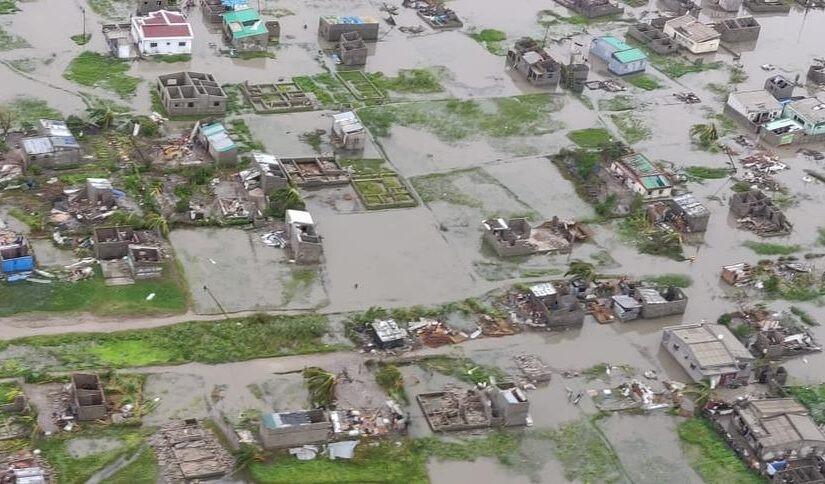MOZAMBIQUE—UNFPA, the United Nations Population Fund, is providing humanitarian assistance to Mozambique in the aftermath of Cyclone Idai to protect the health and well-being of women, through services for sexual and reproductive health (SRH) and prevention of and response to gender-based violence (GBV).
An estimated 1.85 million people have been affected in the three countries, according to the UN Office for the Coordination of Humanitarian Affairs (OCHA). The official death toll stands at more than 200 and is expected to rise.
Continuing heavy rains and further flooding are placing increasing numbers of people are at risk. The immediate priority is search and rescue for people stranded by flood waters. UNFPA is especially concerned about pregnant women, breastfeeding mothers, female heads of households, and young women and girls of reproductive age, including those with disabilities.
Sofala province was hit the hardest, with some 660,000 people affected and roads cut off.
Due to high winds and floods, the central hospital in Beira is damaged. Some 19 sub-provincial level health facilities are damaged and dysfunctional in Sofala, thus mobile clinics are urgently needed to provide life-saving health services.
Protection is also needed. In Beira town (Sofala) the transit centres are used during the day for displaced persons, and the men often go back home for fear of robberies. This increases the risk for women, particularly as there is a lack of privacy due to sharing rooms with other men who are strangers, while the latrines are dirty and have no doors.
UNFPA supporting SRH and protection, including GBV
UNFPA is participating in the joint response, co-chairing the health cluster coordination and leading the protection cluster. As part of the joint inter-agency assessment, UNFPA is working to ensure that data is disaggregated, and priority gaps and challenges are identified to ensure access to SRH services and prevention and response to GBV.
Given the urgent needs, UNFPA is undertaking the following activities:
- Supporting 19 mobile clinics in hard-to-reach areas;
- Providing 1,000 dignity kits to the most vulnerable women and girls, with a further 5,000 kits expected to arrive in the next few days;
- Providing 57 tents for 19 mobile clinics offering SRH services;
- Providing 10 women-friendly safe spaces;
- Providing 240 emergency reproductive kits to cover the needs of more than 300,000 affected people, including delivery kits for communities and hospitals, post-rape treatment kits, and kits for prevention and treatment of sexually transmitted infections;
- Supporting GBV case management and psychosocial services for GBV survivors;
- Increasing community awareness on GBV prevention and on available SRH and GBV services, through volunteers and youth activists from the long-standing Geração Biz youth programme.
Cyclone Idai has also caused widespread flooding in Malawi and Zimbabwe (view Sub-Regional Situation Report: Malawi - Mozambique - Zimbabwe: 14 March).


